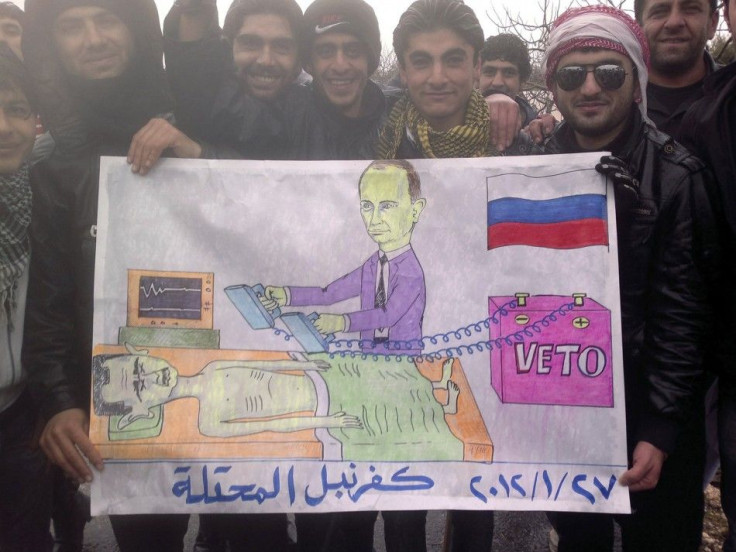Syrian Opposition Unlikely to Accept Russia's Negotiation Plan

Russia wants to mediate talks between the Syrian government and protestors, inviting both parties to informal negotiations in Moscow on Monday.
“In an attempt to contribute with the Syrians to a peaceful settlement without foreign intervention and with respect to the sovereignty of Syria, we have appealed to the Syrian government and to all opposition groups to send their representatives to Moscow at a mutually acceptable time for informal contacts without prior conditions,” the Russian Foreign Ministry stated.
More than 5,000 people have been killed during 10 months of protests against the government of President Bashar al-Assad, most of them at the hands of state security forces, according to the United Nations.
However, on Monday, soldiers in the Free Syrian Army (whio have defected for Assad's forces) clashed with Syrian troops in Damascus, and some are fearful that Syria is teetering on the edge of civil war.
“We are convinced that it is acutely necessary to have such talks in Moscow to ensure the swift end to the violence in Syria, the prevention of bloody fracturing and confrontation in society and the success of deep democratic reorganization in the country in accordance to the aspirations of all Syrians,” the ministry added.
The Russian plan has reportedly been accepted by Assad and the Syrian government.
But Russia is not an objective party. Syria purchases billions of dollars worth of Russian arms, and Russian companies have invested heavily in Syriab infrastructure. Additionally, as one of Russia's last allies in the Middle East, Syria gives the country its only strategic positioning -- and sole military base -- in the region.
As the killings in Syria continue and the nation loses more allies in the Arab League and elsewhere, Assad is relying more and more on Russia's support.
The opposition has so far refused every proposed negotiation with the Syrian government, and the Russia plan should be no different.
Assad has offered to amend the country's constitution, but has refused to step down, especially if he doesn't receive immunity from prosecution like his counterpart in Yemen, Ali Abdullah Saleh, which would be anathema to the protestors' cause.
The resignation of Assad is the condition for any negotiation on the transition to a democratic government in Syria, opposition leader Burhan Ghalioun told Agence France Presse,
© Copyright IBTimes 2025. All rights reserved.




















